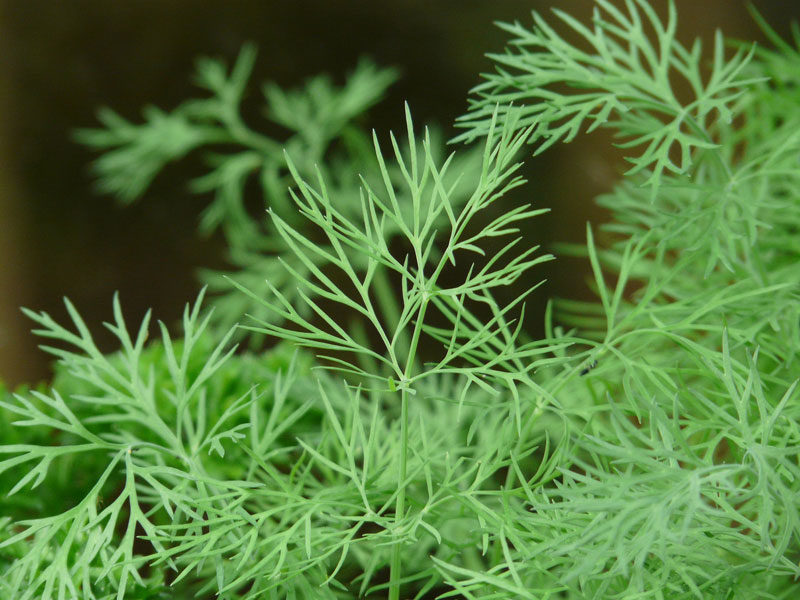Dill (Anethum graveolens)

The dill, also known as cucumber herb, is an umbellifer that originally comes from the Near East.
The antibacterial and anti-inflammatory effect of the seed oil was already used in classical antiquity. In the Middle Ages, dill was cultivated in monastery gardens and used for a wide variety of ailments. It was used for digestive disorders such as gastrointestinal cramps, for headaches, to stimulate lactation, to calm the nerves and to support sleep.
Today, dill is used almost exclusively as a spice. Folk medicine also recommends it in the form of tea as a sitz bath against uterine cramps. Dill seeds contain up to 8% essential oils, especially carvone and limonene, as well as coumarin and caffeic acid derivatives. These ingredients are responsible for the digestive stimulant, anti-flatulent and antispasmodic effect in the digestive tract, similar to caraway.
Recent studies indicate that dill seeds are progesterone-promoting, which would support the use described in folk medicine for cycle disorders and infertility. An effect on the immune system is also discussed.